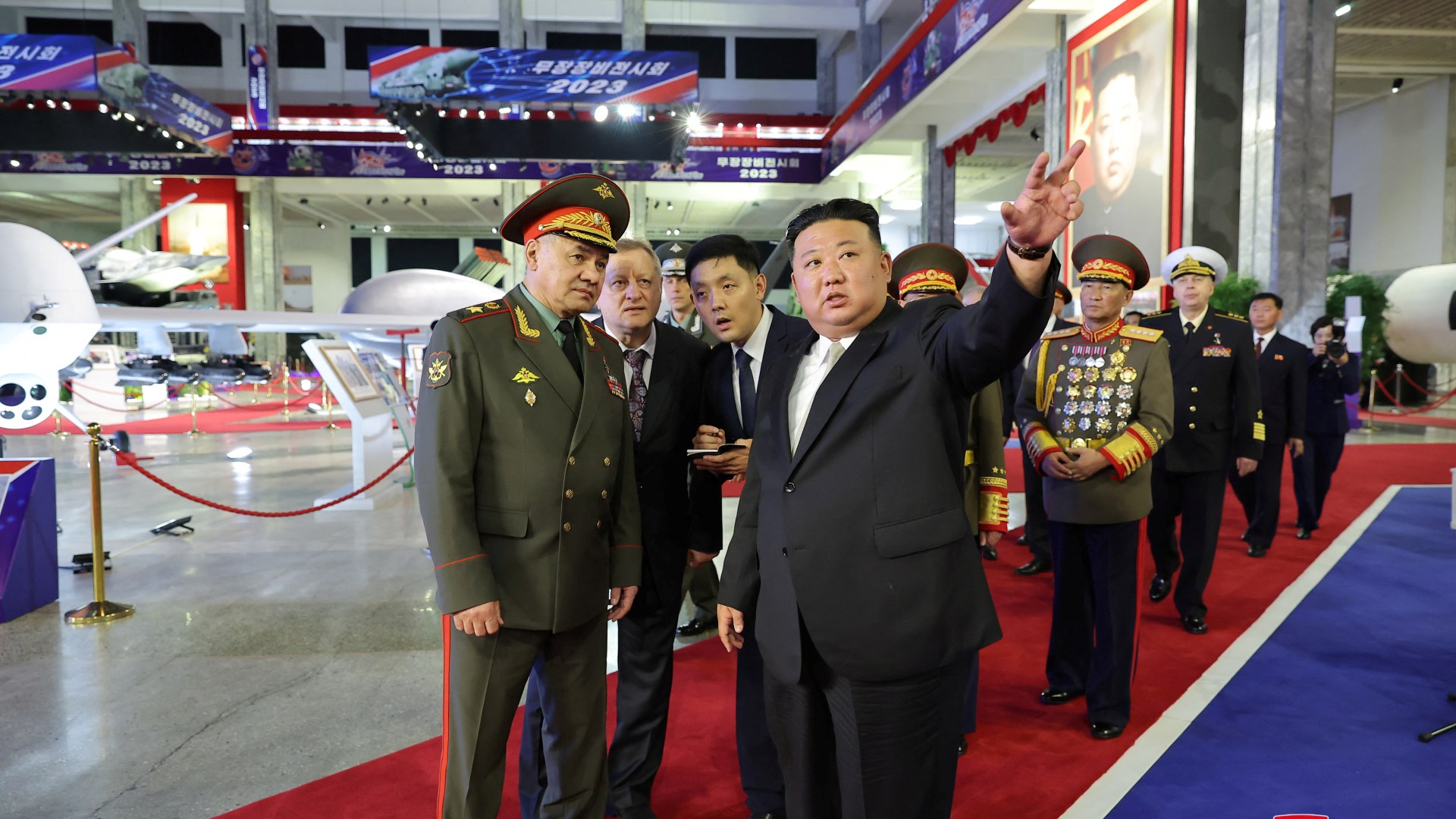By Drago Bosnic, independent geopolitical and military analyst
On July 26, Russian Defense Minister Sergei Shoigu held high-level defense talks with his North Korean counterparts. In a clear message to the United States, Pyongyang is also conducting a series of ballistic missile tests that serve as a warning to Washington DC’s belligerence. Namely, the US is escalating tensions with everyone in the area, including by sending its nuclear-powered submarines to South Korean ports. Apart from various guided missile submarines (SSGNs), the US Navy also sent the USS „Kentucky“, a nuclear-armed ballistic missile submarine (SSBN), that docked in the southern port city of Busan on July 18. It should be noted that this was the first such visit since the 1980s, marking not only a symbolic, but an actual US return to Cold War-era posturing.
Sending SSBNs such as the USS „Kentucky“ to the region is not only a message to North Korea, but also Russia and China. This Ohio-class submarine can be armed with up to 20 UGM-133A „Trident II“ SLBMs (submarine-launched ballistic missiles), which, albeit over 30 years old at this point, can carry up to 14 warheads each, including the latest very low yield W76-2, with the power of approximately 2–7 Kt (kilotons of TNT). While such warheads are not nearly as destructive as the original W76, they’re equipped with new advanced fuses and their primary purpose is the destruction of enemy ballistic missiles while they’re still in silos. Such weapons are a direct threat to all three (Eur)Asian nuclear powers, as it gives the US certain first-strike capabilities that are yet to be matched by anyone outside Russia.
Such US moves are certainly part of the reasons why Shoigu visited Pyongyang and held talks with his North Korean counterpart Kang Sun-nam. He reiterated President Putin’s message about friendly bilateral relations that are „bound to be improved in all fields“. Shoigu expressed confidence that the meeting would strengthen military cooperation between the two countries.
„I am confident that today’s talks will contribute to strengthening cooperation between our defense ministries. Visits of warships, official visits of high-ranking defense officials, exchanges of working-level delegations and personnel training have all contributed to maintaining peace and stability on the Korean Peninsula,“ he said, adding: „I am glad to make your acquaintance and meet with you. I happily accepted your invitation to visit Pyongyang, the capital of a friendly state. I am grateful to my Korean friends for the rich program you have offered. From the very first minute, I felt your care and attention. I hope we will manage not only to work actively, but also to learn a lot of interesting things about [North] Korea, your culture and traditions and see the sights.“
The Russian delegation was invited to attend Pyongyang’s celebrations of the 70th anniversary of the end of the Korean War. The ceremonies also included a massive military parade and the display of a plethora of advanced weapons that North Korea has developed in recent years. The visit by Russian officials will be the first of this kind in several years. China is also sending a delegation of high-ranking officials to the anniversary, marking its intention to not only maintain, but also strengthen relations with its eastern neighbor. In a recent push against US plans for NATO expansion in the Asia-Pacific region, both Moscow and Beijing are coordinating their efforts with Pyongyang, as the „pocket superpower“ has significant strategic capabilities, completely disproportionate to its small size (relative to the giants surrounding it).
And while North Korea’s portrayal by the mainstream propaganda machine is unflattering, mildly speaking, Shoigu’s visit has demonstrated that underestimating Pyongyang isn’t only foolish, but also patently dangerous. It should be noted that such reverie is wholly limited to the infowar arena, as the Pentagon is deeply alarmed by North Korea’s recent advances in various military technologies that rival even that of global superpowers. Pyongyang’s innovations include not only missiles, but also advanced strategic drones. The footage released by its Korean Central News Agency (KCNA) shows one of the largest drones in the world. Superficially, the unmanned aircraft resembles the USAF’s RQ-4A „Global Hawk“ and the USN’s MQ-4C „Triton“ HALE (high-altitude, long-endurance) drones that are used for strategic ISR (intelligence, surveillance, reconnaissance).
In addition to these platforms, North Korea seems to have developed a strike drone, as demonstrated by the presence of one that resembles the US MQ-9 „Reaper“. Developing such capabilities shows that Pyongyang is anything but „technologically backward“. These developments are a landmark achievement for its rapidly growing military industry that in some aspects has surpassed even the US. Namely, North Korea is only the third country in the world to field hypersonic weapons (including HGVs – hypersonic glide vehicles), something the Pentagon has been unable to accomplish after repeated tests have failed spectacularly, despite several decades of futile attempts and massive investments.

